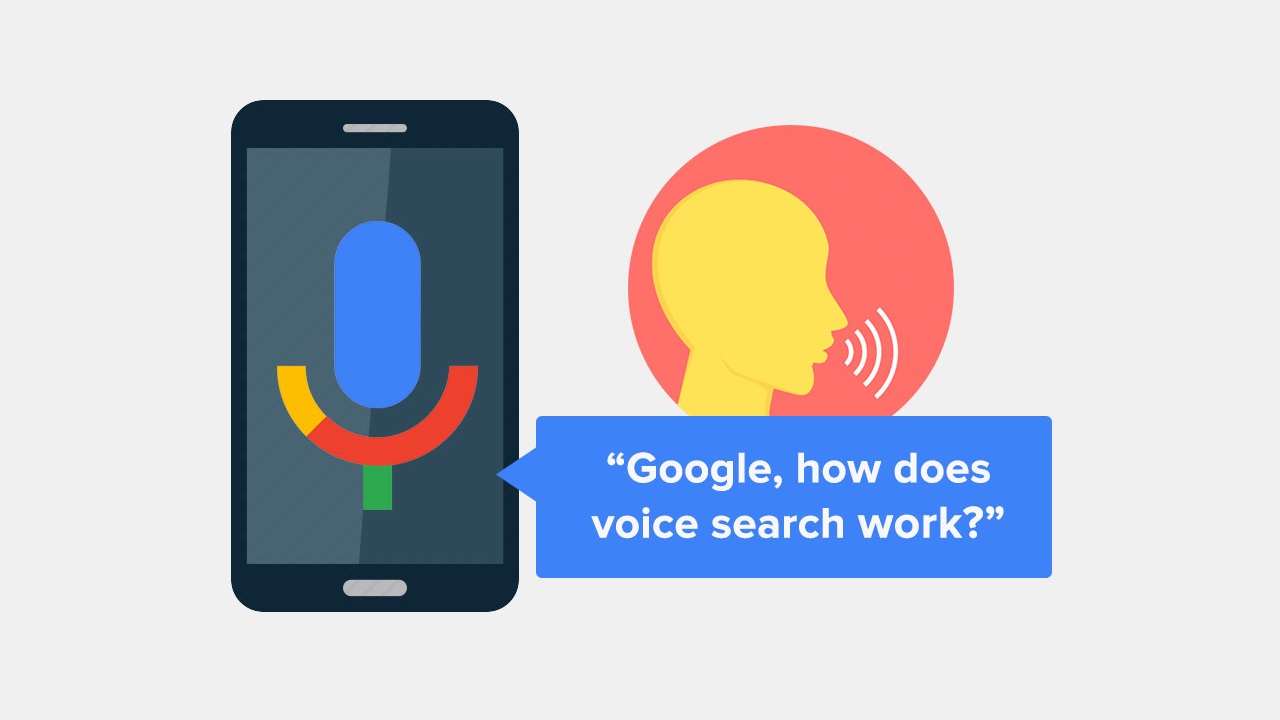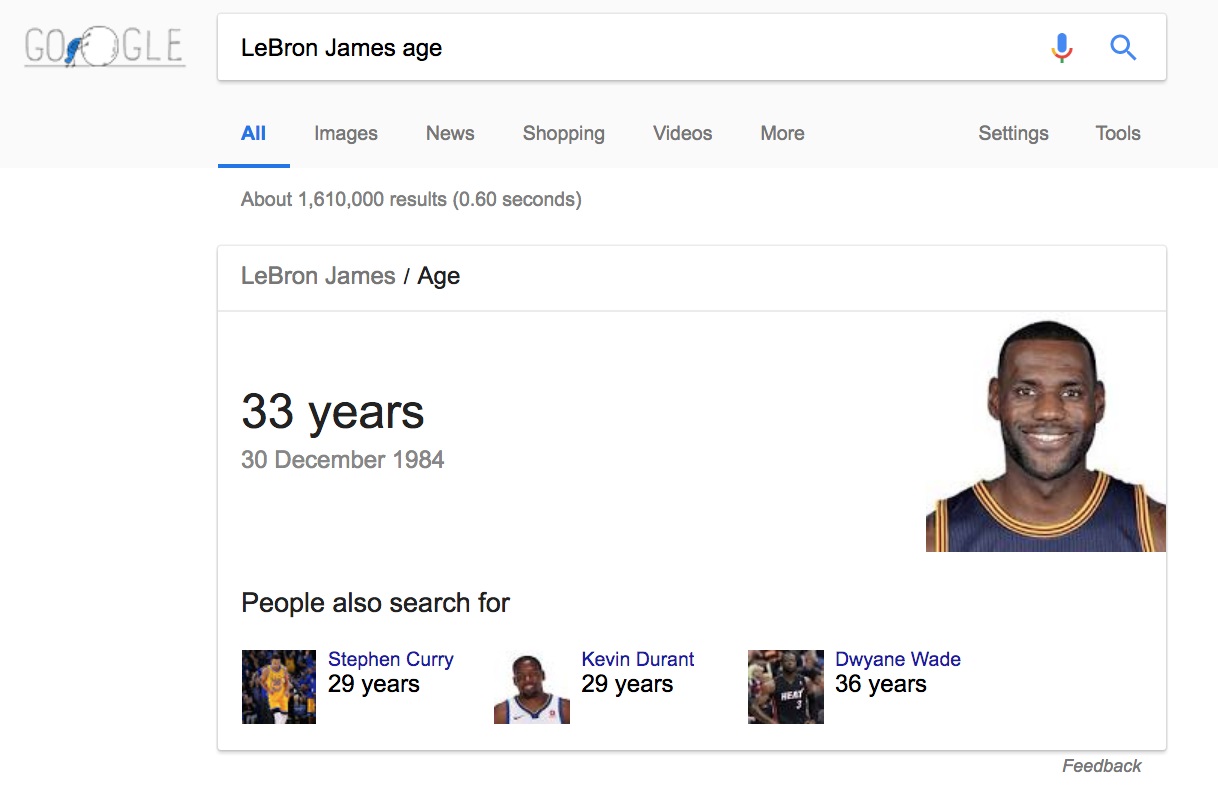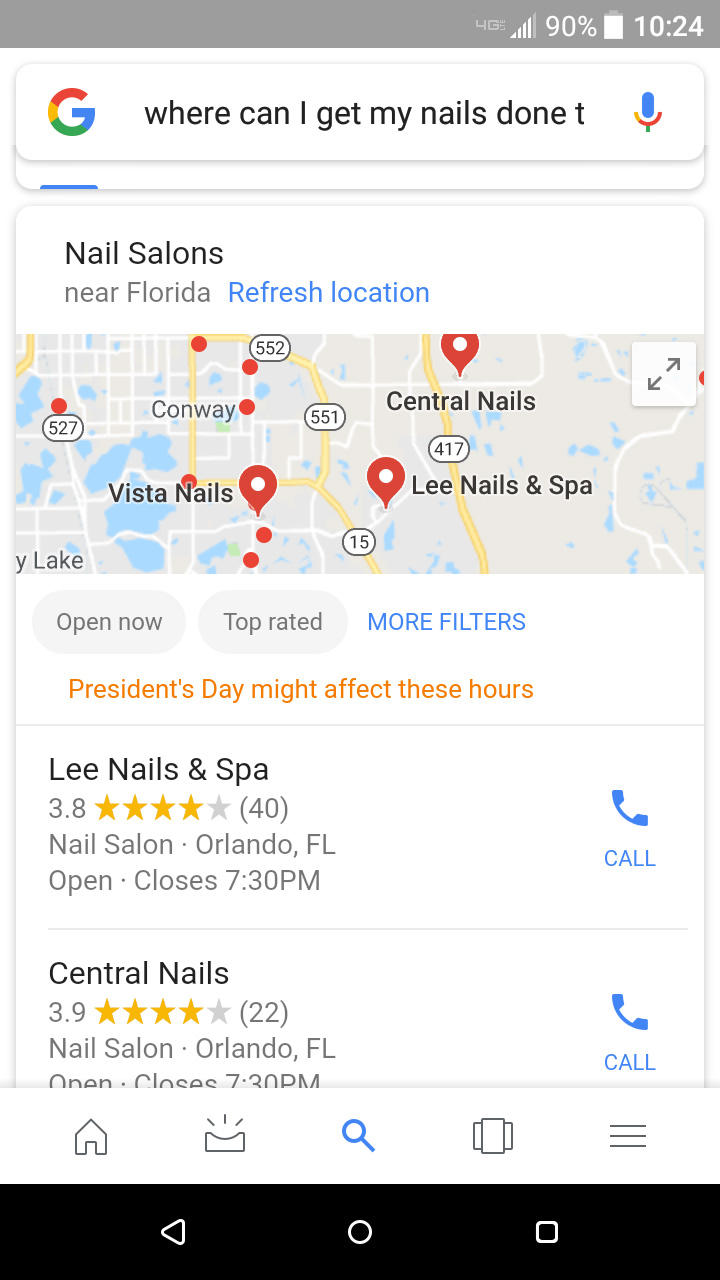Some SEO trends won’t just go away. Voice search has become a big deal — and it can direct much more traffic to your website if done right.

Online marketers thought mobile SEO would be a game changer. As it turned out, it didn’t require us to alter our tactics that much — and what worked for desktop SEO pretty much worked for mobile SEO, too.
Voice search, on the other hand? It is a different animal, and it’s only by understanding the queries behind a voice search that you can direct more traffic to your page.
In this article, we take a look at why you need to care about voice search, why it’s a game changer, and how you can optimize it for your website.
Why do you need to care about voice search?
Check any article on the top SEO trends for 2018, and it’s extremely likely that “voice search” will be listed. Here’s one from SearchEngineLand and here’s another from Forbes. Unsurprisingly, voice search features in both.
This is because voice search isn’t a fad that’s going to go away. It got past the early adopters stage, and with 44% of the world’s population owning a smartphone in 2017, more and more of us are going to realize how convenient voice search is.
Take a look at other consumer trends, too. Sales of smart speakers rocketed in 2017, which means it’s going to be even easier to search with our voice in 2018. There’s no need for typing when we have smart speakers that enhance the voice search process!
Then there are the stats coming in from Google itself, with one out of five queries now being a voice search.
The key takeaway from all of this is that your customers are using voice search because it’s easy. They can use it on the commute to work, at home, when they’re out with friends … and even when they’ve just got out of the shower and realize they want to order some food.
Why is voice search a game changer?
Earlier, we mentioned how mobile SEO didn’t change the game as dramatically as some online marketers thought it might do. In fact, mobile queries are often the same as desktop queries. There are differences that can affect your positioning in the SERPs, of course. For example, an unresponsive mobile site will take longer to load, and this can cause a drop in its rankings.
However, over time it’s become apparent that there are a few differences in mobile queries and desktop ones. For one thing, because we use our mobile phones on the go, consumers began querying things like “store hours” or “near me.” These searches would have grown a lot with mobile search.
As you can see from your keyword rankings, the difference between mobile SEO and desktop SEO hasn’t been significant enough for us to call the former a game changer. With voice search, it’s different: Voice search is a game changer. The way people search is entirely different because the context has changed as well as the means.
Let’s say you’re sat at home on your computer and want to find out what time the nearest Pizza Hut closes. You might quickly type “Pizza Hut closing time.”
If you were on your phone and did a voice search, you’d say something like this: “Ok Google, tell me what time the nearest Pizza Hut closes.”
The phrasing is different, and this will significantly affect how you as a business owner optimizes your page.
Voice search is also changing the game because, according to Google itself, voice searches are 30 times likelier to be action searches than a typed search. Here’s the exact quote from as far back as 2016:
“We’ve got a lot of, a huge increase in voice queries because as people are using their phones more, and a more natural way to interact with it is by speaking what they need. And we are seeing that around 20% of the queries on the Google app on phones are now voice queries. As well as out of voice queries as a total thing, we get about 30 times more action queries by voice than by typing. So there is definitely a shift happening.”
This relates to user intent and what action an individual wants to take. And once you understand a user’s intent, you can then start to create the kind of content that will boost your ranking. The key takeaway here? Action queries will demand action-oriented content from you.
Let’s now take a look at how you can optimize your website for voice search:
1. Be more conversational
Consider yourself a great conversationalist? Now’s the time to prove it.
When we type a query into Google on our desktop, we know that we can be a bit careless with our word choice and syntax because Google will fill in the gaps.
For example, let’s say I want to find out how old the NBA star LeBron James is. Instead of typing, “how old is LeBron James,” I’ll probably type: “LeBron James age.”

It’s simple enough and, as you can see from the image, it’s returned the results I wanted. Excellent, and this is what we call computer language.
Let’s flip this and imagine I’m talking into my mobile device but want the same information. Because I’m a fully-fledged human being, I’m hardly likely to talk into my mobile device using computer language. Instead, I’ll phrase it like this: “_How old is LeBron James?_”
It’s a lot more conversational.
Here are some tips for finding conversational keywords:
- Use superlatives such as “Where is the best …”, “What is best …” and so on,
- Answer both positive and negative questions, such as “Why isn’t my car working?”
- Listen to people talk! There’s nothing better than to observe natural human speech. Know a friend who uses Amazon Alexa? Watch them talk to their virtual assistant and notice the language they use.
2. Use question phrases
A few things we’ve learned so far in this article:
1) Voice search tends to be action-oriented, and
2) Voice search contains a lot of question phrases.
Look at it like this: Our mobile device is in many ways our very own virtual assistant. When we’re in the middle of a big city and hunger starts to eat away at us, we’re going to turn to our virtual assistant with a question that sounds pretty much like: “Google, where is the nearest steakhouse near me??!”
Those two points above are key because a lot of people are making a LOT of noise about voice search equating with long-tail keywords.
This is kind of true. However, what we think you should focus on more are question phrases at this point.
One of the reasons for this is that it’s still hard to use your SEO tool for a long tail keyword research — basically, phrases that individuals speak. Instead, your tool will throw up a lot of typed long tail keyword phrases instead, and that isn’t much use to you at the moment as we seek to optimize your site for voice search.
As such, it’s a good idea to find out what questions people are asking. To do this, you can use other tools, such as Answer the Public, which would not only give you insights into the questions people are asking or speaking, but also powerful insights into their intents and motivations — and analyze the keywords’ potential ad performance in Nightwatch.
This is important. Once you’re inside a customers mind, you’ll be able to put together a more effective marketing strategy.
Here are some quick tips that will help you decipher a user’s intent:
- If they are asking “Where” it could mean they’re a buyer in heat,
- If they’re asking “When” it could mean they’re warm and need a little nudge,
- If they’re asking “How” it could mean they need some help and you’ve still got some work to do if you want to convert them.
3. Optimize your business listing
Your business is on Google. But is it easy for people to find via voice search?
Almost a quarter of voice searches are for local content. This makes a lot of sense when you think about it: People are on the move and use their phones to assist them with something there and then, whether they want to find a place to eat or a place to get their haircut.
Let’s imagine I want to get my nails done by a local business. I query: “Where can I get my nails done today near me?”

Google returns all kinds of useful information, including ratings of local nail salons, closing times and distance. If I wanted to, I could even call a salon there and then on my phone. This is great for customers but less great for you if you’re not showing up in the SERPs.
There are a few ways to optimize your site so that your local SEO performance is better. One of the things you can do is answer a popular query so that your post appears as a featured snippet. If you go down this route, make sure that your post is valuable and more in-depth and informative than your competitors.
Another thing you need to do is claim your Google My Business listing. This is important because ever since the advent of mobile SEO, users are using queries like “nail salon near me.” And unless your business is listed in Google My Business, your website won’t be displayed in the search results.
4. Make sure your site is mobile friendly
Lastly, this is a trick a lot of people tend to miss because they perhaps assume that their website will automatically be mobile friendly.
However, this isn’t the case, and how your site looks on a desktop isn’t how it looks on mobile. If you don’t make your website responsive, the mobile version could be messy, hard to navigate, and slow to load. And because most voice searches take place on mobiles, it’s super important that your website is mobile ready.
The first thing you need to do is implement a responsive web design.
Then, run a site speed check before running your site through Google’s Mobile-Friendly Test Tool.
As you can see, voice search optimization isn’t actually scary at all. And while it’s a game changer, it hardly means that you need to uproot your entire SEO strategy. Just focus on question phrases, prime your site for mobile usage and get your business listed on Google My Business.
Got any questions? Leave us a comment below and we’ll get right back to you!
